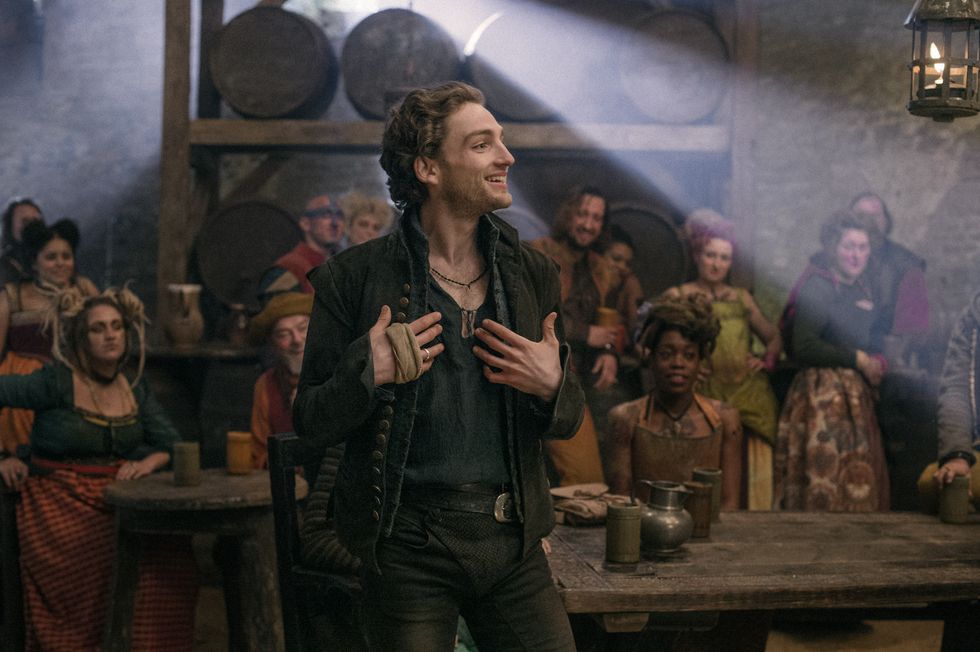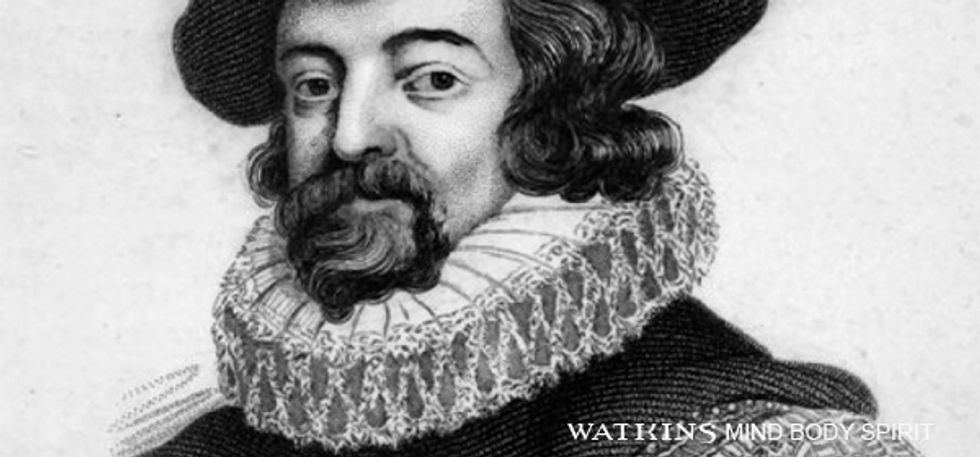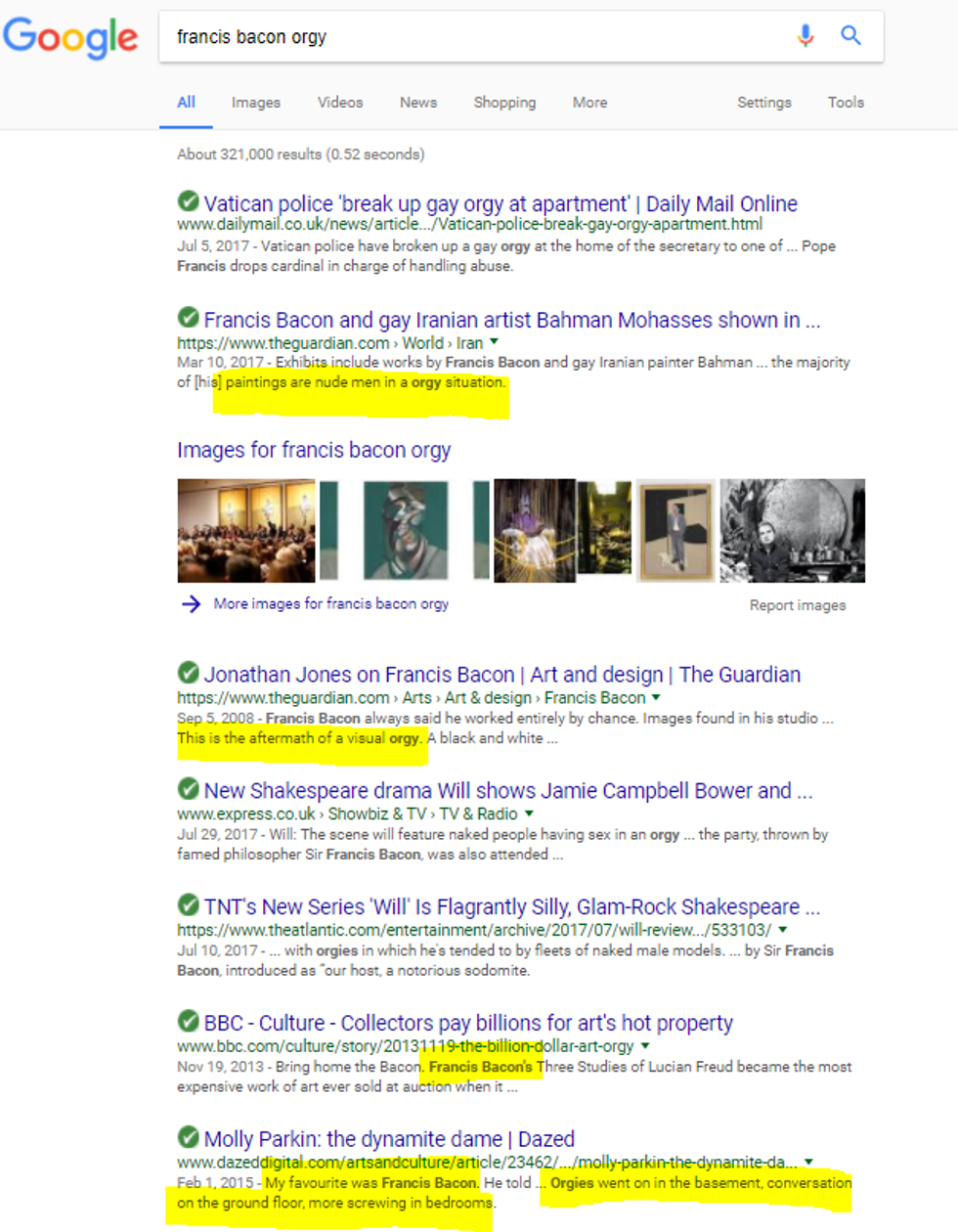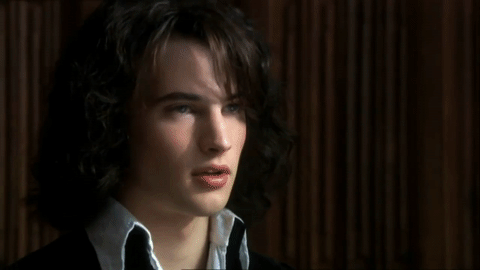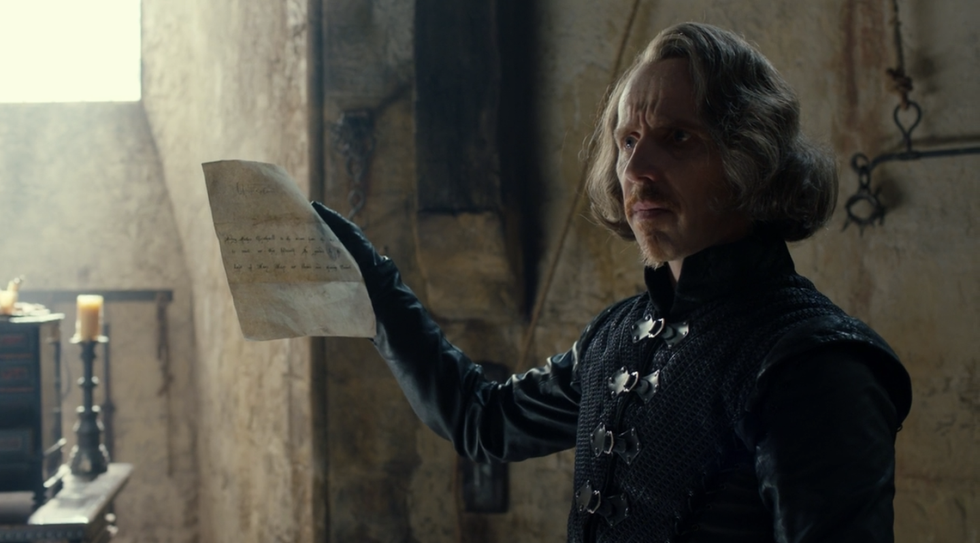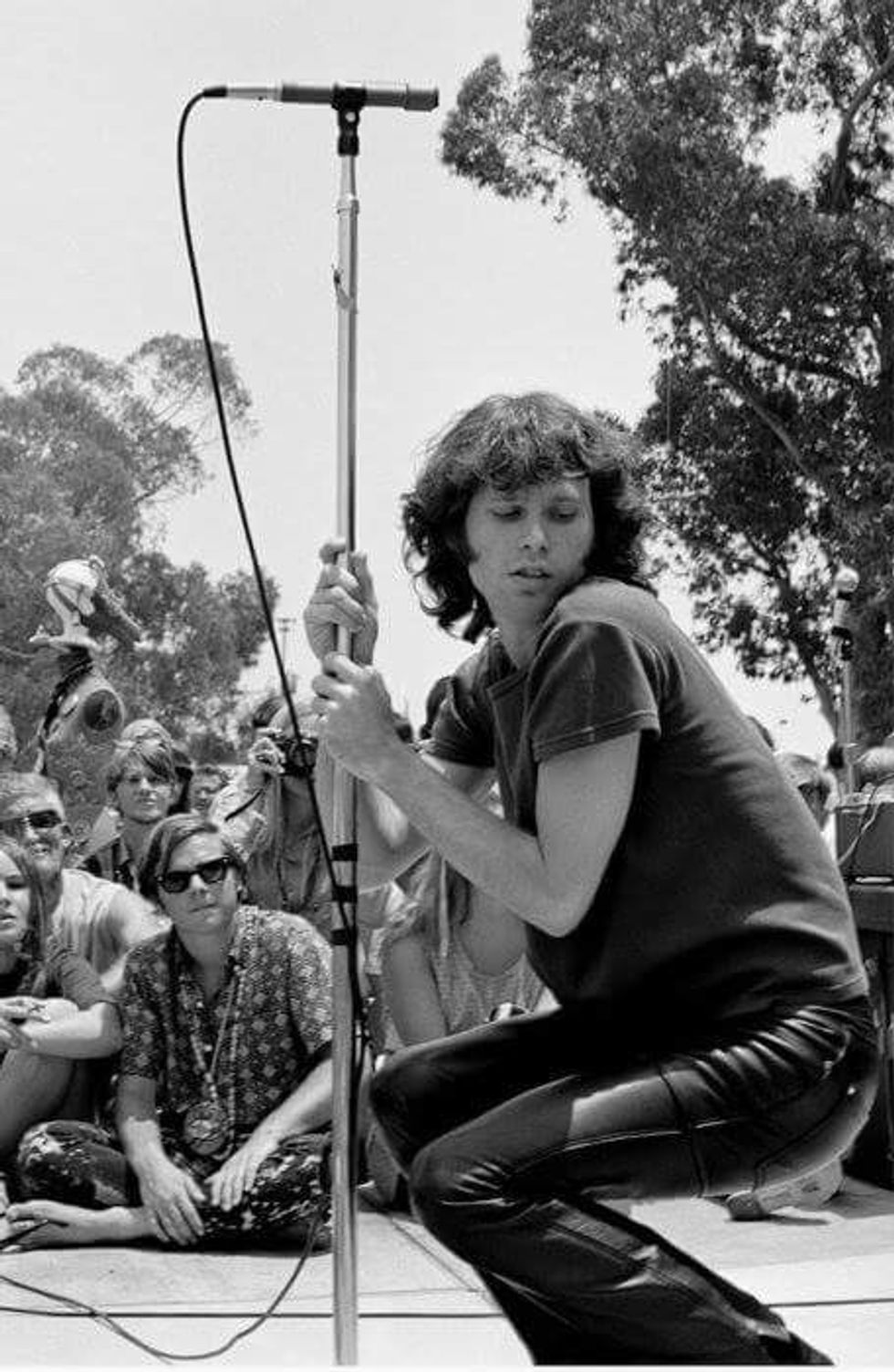The quality of this show inexplicably improved over the last four episodes; I think it pulled a Reign in that, since it will probably be cancelled, its writers decided to end on the high, character-driven notes and respect for the history with which they should have started. By the season finale, I even switched from being able to count on my hand "what went right with the episode" to being able to count on my hand "what went wrong."
But first things first:
Bacongate
So awhile ago, to promote their "Marlowe takes Shakespeare to a pansexual rager and they have sex with demons or something" episode, the Facebook page for Will aired this behind-the-scenes video. Normally, Jamie Campbell Bower pretending to know things about history wouldn't upset me, but the fact that they call this historical snippet "The Bacon Orgy" just gave me trepidation.
In case you didn't know, Sir Francis Bacon was an extremely important philosopher, scientist, and politician during the reigns of Queen Elizabeth I and King James I. Among his contributions to society are innovations in the essay genre and advocacy for what we today would call the scientific method of experiment- and data-based theories. And I'm guessing that you didn't know, or had at best a general idea, since it's generally not your job as a normal person to keep tabs on just who Sir Francis Bacon was. The job of Will, presumably, would be to fill you in on this, and present Bacon with a fair degree of dignity and allow his thorough, astute intelligence to show through in a compelling cameo.
LMAO jk bring out the nipple clamps
Campbell Bower tells us, his enthusiasm tangibly decreasing by the second, that Bacon was "notorious for throwing these enormous parties, usually involving an orgy, or twelve." This, as far as I have researched Bacon, is - surprise! - not true (although if someone has intel on Sir Francis Bacon throwing giant town-destroying benders with platoons of strippers and ruffs starched with crack cocaine, please let me know.) Bacon, as far as I know, only threw the standard courtiers' banquets with witty conversation and impressively stuffed capons. That they would make the leap to "orgy" seemed excessive, even for this show. And then I noticed:
Long story short, confusing Francis Bacon and Francis Bacon is the capital sin of historical fiction and whoever did this needs to stop.
Cavalier Treatment of Early Modern Homosexuality in General
The "Bacon Orgy" episode was one of the most glaring examples of this. And like I said, Will had improved by the later episodes, and its gay relationships were no exception. Marlowe and That Random Guy who Died was great, although it did not make up for the fact that they took Shakespeare's Dark Lady sonnets at face value but completely ignored all the amorous sonnets addressed to a young man.
But holy shit the "Bacon Orgy." Using gay men kissing as backdrop to make your party edgy and exciting tends to be frowned upon even in contemporary dramas, but to cast the Bacon household as the venue for this fluffy Madonna-esque sexercise sequence is really insensitive to Bacon and his family's actual lives as they relate to homophobia and its consequences.
Long story short, the crime of "sodomy" between men was punishable by death in England. This sentence was seldom doled out but it was there all the same, which pretty much can sum up all the real risks that came with being gay during the period. The "records" that we have of Francis Bacon being gay pretty much come from libels (similarly with Marlowe, although there are lots of passages in his writings that could be interpreted as homoerotic). The "write a disgusting poem calling your enemies sodomites" was an established genre by the time such things were leveled at Sir Francis, and they were designed evoke disgust and hatred toward the victim. Since the only contemporary reference to Bacon loving men comes from these libels, one of the cruelest of which was left outside his house, it's really gross that this show opted to characterize Bacon not based on any of his own writings, but on his enemies'. Four hundred years later, as JCB's Marlowe gleefully calls Bacon a "notorious sodomite," they're still winning. We're not talking about Bacon's accomplishments, we're talking about where his penis goes. Additionally, Bacon's brother, Anthony, could have been burnt at the stake for relations with his male page but escaped punishment and had to leave his lodgings and lay low because of it. So regardless of Francis and his brother's actual sexualities, to take these libels as fact is to 1) totally neglect any and all history that goes with them, and 2) trivialize some truly scarring oppression in order to throw a party in which gayness is an ornament.
That doesn't even cover their casual use of the word f****t, which wasn't even used as a slur until hundreds of years later. That they'd just throw it in multiple times for kewl points was honestly gross and unnecessary, especially since they took such pains to replace "fuck" - which had actually started to enter parlance at the time - with the more sedate and antiquated "swive."
[hover over GIF for sound button]
"Watch Will on TNT to find out. Or crack open a history book, but where's the fun in that?"
I'd tell you all to fuck yourselves, but I hear that's no fun either :(
Shouldn't rag on JCB because he was a great Marlowe, but even Marlowe writes on the brutal dangers of being gay in Edward II, although knowing that would require READING
*WINK*
Poorly Written Lead
I'd literally take the 19th century fairy tale about Shakespeare hunting the deer or whatever over this Shakespeare, who is recognized as a genius by the other characters while literally doing nothing. The part consists of
a) having famous Shakespeare lines said by other characters, which he then remembers and writes down
b) having him stuck on a line, and someone else finishes the pentameter, and he says "mmm, that's good!"
c) knowing nothing about the books of the period? Like literally Richard Burbage shows him a Holinshed's Chronicles and he's like WTF is that and I'm like WTF are YOU, weird Shakespeare who's never read an Italian novel or Ovid or any of the source material actual Shakespeare is proven to have used?
d) in one episode he even comes up with Joseph Campbell's ur-mythological Hero's Journey as a plot structure? HAHAHAHA
d) everyone tells Marlowe that Shakespeare has "feeling" and "meaning" when Marlowe doesn't. I literally have no idea what this means, and poor Laurie Davidson trying to act "feeling" and "meaning" is painful to watch. Producer Craig Pierce says that Will is "burdened with conscience," as if "burdened with conscience" actually means anything at all.
Poorly Written Villain
Richard Topcliffe was historically the man in charge of interrogating and torturing suspected traitors, and he made a naturally suitable Big Bad for Will's season 1. But he, along with Shakespeare, ended up being one of the most one-dimensional characters on the show. Every time they start to hint at him being complex - occasionally they'll bring out his family, or he'll have one line like "Do you think I like doing this?", or Shakespeare tries to figure out what in his past made him a "monster" - but then the writers do an about-face and just bring it back to him being a sadist. They could have gone in so many directions with this. Is Topcliffe's a case of Stanford-prison-experiment like derangement; was it inevitable given his job is to hurt people? Is he even sadistic or evil, or just a family man performing his job in a banality-of-evil type way? No? We're just going to pile on more scenes of him torturing people and being a pederast? OK.
The real crime might be Topcliffe's doublet, which is covered in fasteners they apparently got from the cosplay section of a JOANN Fabrics.
I think one moment from a late episode sums it up: Will asks Topcliffe about when he became so hard and cruel, and Topcliffe responds that as a child he was praying on the roof when a bully came up and started kicking him. The kid then falls off the building and fatally cracks his head. Topcliffe steps on his neck.
"For mercy?" Will asks - because that would be an actually interesting dimension, I thought, a torturer doing what he does because he thinks that he's the most humane person to do it.
"For power," hisses Topcliffe, because of course he does.
Other Crimes of the Century
Criminal under-use of Emilia Bassano
Criminal under-use of Philip Henslowe
In a drama about the Catholic underworld, no appearance of John Donne AT ALL
Queen Elizabeth I doesn't even appear, because either they didn't want to complicate their narrative of England being a totalitarian state, or probably because they didn't even have the budget for one Elizabeth I outfit.
Criminal under-use of the good CGI
By the end of the series, it was clear the writers had realized that they actually wanted it to be about literally anyone but Bland Shakespeare, so they added narratives about Richard Burbage, Autolycus, their girlfriends, Alice Burbage, and even this nameless Catholic father and son that tore out my heart, but it was too little, too late.
They also jumped ship on the labored "Punk aesthetic/music", and dropped the anachronistic 1970s songs. As this excellent piece by Pitchfork points out, not all rebellious moments in history should be reframed as "punk" or 70s without an understanding of the sociopolitical nuances of the period. They honestly dropped the ball big-time on what in retrospect could have been great. You could have paired Marlowe with Jim Morrison and his wild, destructive concerts, or chronicled his isolation from Elizabethan society and obsession with violence via Pink Floyd's The Wall (especially as an atheist suffocating under Queen Elizabeth's cloying spiritual "Mother" persona).
[Jim Morrison]
You could match the classically-obsessed comedian Jonson with the operatic technical mastery of Queen. Have Edmund Spenser somewhere off doing puffy shirt prog rock. Moll Frith as Joan Jett. John Donne just moping in a corner singing Leonard Cohen songs. And Shakespeare bursting onto the scene, allegedly doing things with words no one had done before? You honestly couldn't have made him Hendrix or Springsteen or something?
Overall, this series was a huge disappointment, especially since this would be the first depiction of many remarkable Elizabethans - Bassano, Robert Southwell, the Burbages, and Topcliffe - onscreen. If you have to watch anything, watch the last two episodes here. I always got the impression that the writers actually wanted to write about Marlowe but didn't, as his was the only "writer" character I could believe actually wrote something like Doctor Faustus.
And one last thing: this whole show's gimmick is that it's wresting Shakespeare from "academic elites" and restoring him to his place as a "rock star." But this is a flawed premise. There's no "conspiracy" to keep Shakespeare away from the masses, and there's no condescending academics sneering at this show because it's combining periods or giving Shakespeare a life outside literary analysis. This show is bad for the exact reasons it preports to be good: it ignores what we know about the period, and in the process presents a world that is half-developed, vague, cliche, and unbelievable. There's a common saying in Shakespearean acting that you don't get far without the text; the text contains all that you need to know. Maybe if the creators of Will had conducted their research using more than Google and a Shakespeare insult book, they could have given their subject more dimension than "meaning" and "conscience." Ironically, in their quest to destroy some academic Shakespeare sacred cow, they create one of their own, this vaguely progressive Hero's Journey Shakespeare that they dare not compromise with nuances or details.

